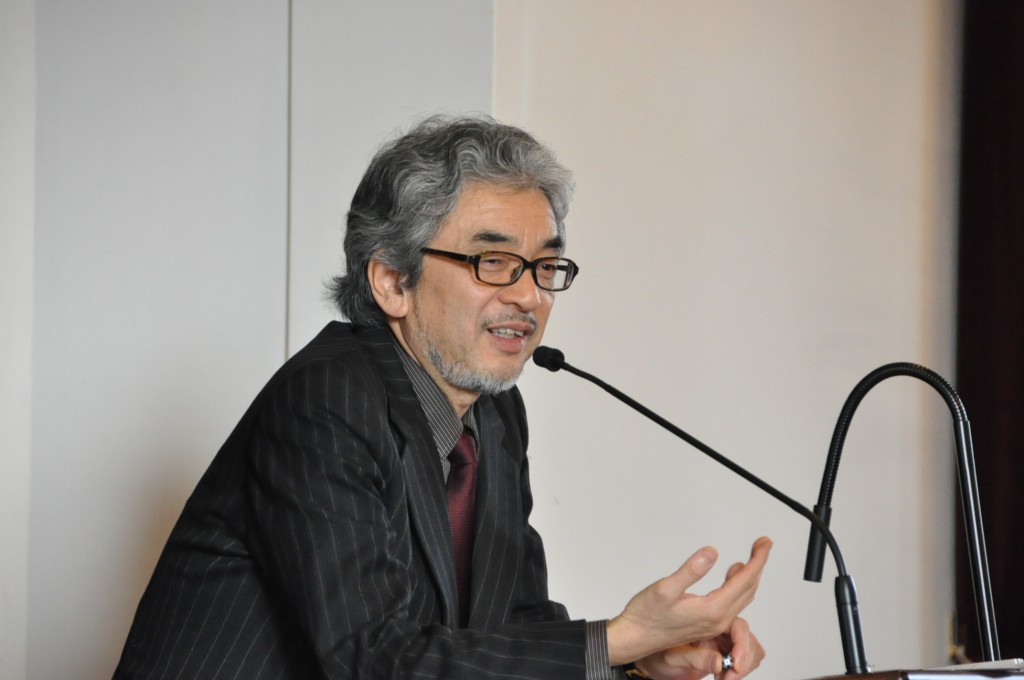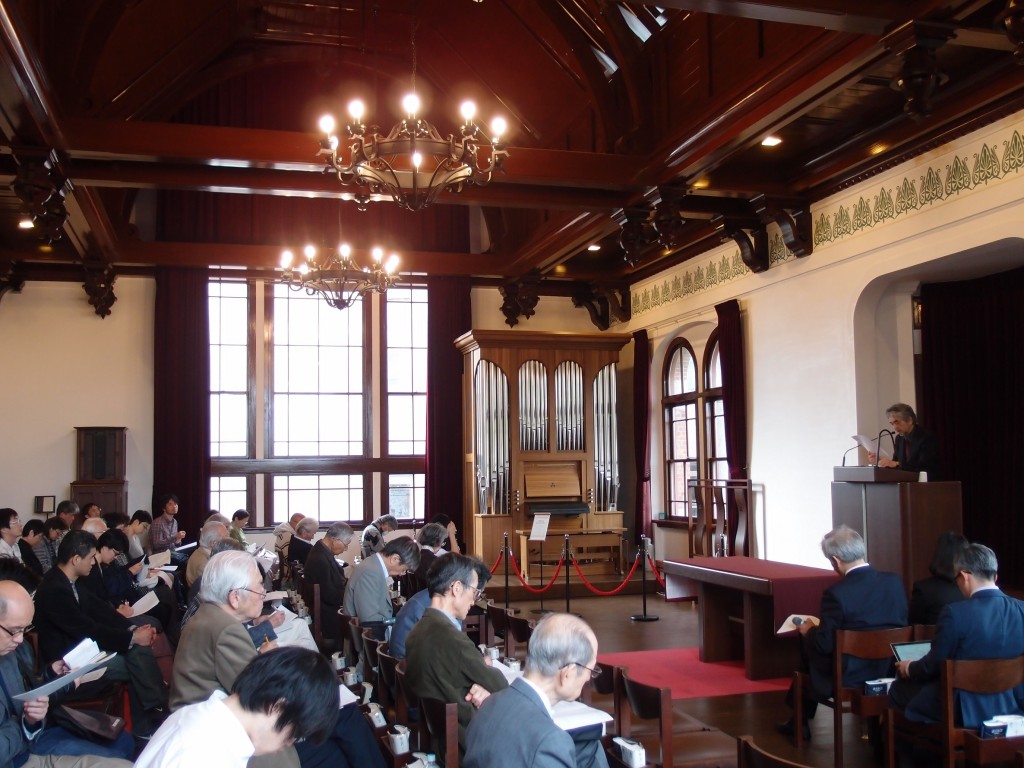Center for Interdisciplinary Study of Monotheistic Religions(CISMOR)Doshisha University
> Public Lectures > The Talmud and Japanese CulturePublic Lectures
The Talmud and Japanese Culture
| Date: |
2015/11/07 13:00-14:00 |
|---|---|
| Place: | Clarke Memorial Hall Chapel, Imadegawa Campus, Doshisha University |
| Lecture: | Professor Hiroshi Ichikawa (Graduate School of Humanities and Sciology) |
| Summary: | |
|
What kind of relationship is there between the Talmud and Japanese culture? In fact, such a relationship has not been initiated. Christianity has been transmitted to Japan; thus, the Old Testament can already be regarded as part of Japanese culture. However, the way it is read in Judaism is different. In the Jewish community, the Talmud has established the reading of the Hebrew Bible (the Old Testament). So how can those within Japanese culture learn about the Talmud? In Japan, the Old Testament tends to be read as a story, but Jews regard it as the words through which the old God revealed his will to humans. It is meritorious in Judaism to thoroughly learn the Bible as the word of God. When reading the Hebrew Bible, it may be surprising that it contains inconvenient parts for Jews. For example, immediately after sealing a covenant with God on Mount Sinai, the Israelites committed sin by creating a golden calf as an idol. Although they were the chosen people of God, their country was destroyed, they endured the hardships of captivity, and were ultimately scattered across the world. Although such facts may be inconvenient, they cannot be ignored. The rabbis Talmud have faced these issues in the Talmud head on; as a source of self-reflection, this has inspired the Jewish people and made Jewish believers do their utmost to please God. The Talmud means "study of the Torah." The Torah contains the teachings of God, and Jews believe that these eternal teachings of God were revealed to the prophet Moses. In addition to the "law of Moses" (Pentateuch), which was written down, there are also the oral teachings that God gave to Moses and that have likewise been passed down. It is believed that these teachings were passed down from Moses to Joshua, from Joshua to the elders, and from the elders to the prophets. Furthermore, following captivity in Babylon, a large gathering of people was held in Jerusalem, and these teachings were passed down to the Jewish wise men and rabbis. Moreover, these oral teachings are compiled in the Mishnah, which is referred to as the "culmination of legal standards." Since the establishment of the Mishnah around 200 CE, the study of the teachings of God in Judaism has focused on the Torah that has been written down, and the Torah that has been passed down orally. The result of this learning is referred to as "Gemara" in Aramaic; the Talmud and Gemara are synonymous. To draw a comparison with Japanese culture, it is possible to examine Jewish thought in the Talmud through the topic of harmony. The Seventeen-article constitution of Shotoku Taishi states that "harmony is to be valued," but is the idea of harmony being used as a pretext by the strong to force the weak to submit? Is there a method to resolve disputes that will convince the minority? In the Avot section of the Mishnah, it states that "any disagreement which is for the sake of Heaven shall eventually endure." This passage affirms the thinking that any conflict of opinion or dispute that is for the sake of heaven, that is, the only God . Even though the word of God has been handed down, if the opinion of rabbis is divided, how should the people of later generations respond? Talmud shows us the example of this method of learning. Discussions in the Gemara search for the cause of the conflicting opinions and the basis of each claim, taking the form of rebuttals and surrebuttals. When each party could not persuade the other party, it was regarded that the will of God was determined by the vote of the majority, and the minority opinion was also recorded. The Talmud is a human endeavor to explore the will of God; therefore, there is no absolute answer that can be considered to be the will of God. A rationally convincing code of conduct was born based on this accumulation of human thought. This can be called the essence of the Jewish spiritual culture. Japanese culture can be studied through the freedom and severity of Jewish culture, as based on the study and practice of the Talmud that has continued for approximately 2,000 years. Kotaro Hiraoka Postdoctral Fellow, CISMOR |
|
|
*Admission Free, No Reservation Necessary. *Lecture in Japanese. |
|

